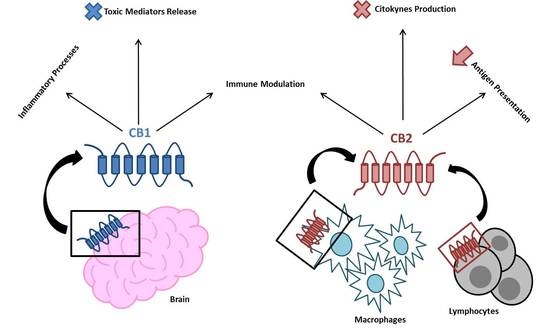 “Epilepsy is a neurological disorder that affects approximately 50 million people worldwide.
“Epilepsy is a neurological disorder that affects approximately 50 million people worldwide.
There is currently no definitive epilepsy cure. However, in recent years, medicinal cannabis has been successfully trialed as an effective treatment for managing epileptic symptoms, but whose mechanisms of action are largely unknown.
Lately, there has been a focus on neuroinflammation as an important factor in the pathology of many epileptic disorders. In this literature review, we consider the links that have been identified between epilepsy, neuroinflammation, the endocannabinoid system (ECS), and how cannabinoids may be potent alternatives to more conventional pharmacological therapies.
We review the research that demonstrates how the ECS can contribute to neuroinflammation, and could therefore be modulated by cannabinoids to potentially reduce the incidence and severity of seizures. In particular, the cannabinoid cannabidiol has been reported to have anti-convulsant and anti-inflammatory properties, and it shows promise for epilepsy treatment.
There are a multitude of signaling pathways that involve endocannabinoids, eicosanoids, and associated receptors by which cannabinoids could potentially exert their therapeutic effects. Further research is needed to better characterize these pathways, and consequently improve the application and regulation of medicinal cannabis.”

 “The endocannabinoid system (ECS) has emerged in recent years as a potential treatment target for alcohol use disorders (AUD).
“The endocannabinoid system (ECS) has emerged in recent years as a potential treatment target for alcohol use disorders (AUD).
 “Endometriosis affects a large proportion of women during their reproductive years and is associated with pain and infertility, also affecting psychological wellbeing and quality of life. The pathogenesis of the disease remains unclear, although it is believed to be multifactorial.
“Endometriosis affects a large proportion of women during their reproductive years and is associated with pain and infertility, also affecting psychological wellbeing and quality of life. The pathogenesis of the disease remains unclear, although it is believed to be multifactorial. “Transcutaneous electrical nerve stimulation (TENS) promotes antinociception by activating the descending pain modulation pathway and consequently releasing endogenous analgesic substances.
“Transcutaneous electrical nerve stimulation (TENS) promotes antinociception by activating the descending pain modulation pathway and consequently releasing endogenous analgesic substances. “Endocannabinoid system consists of
“Endocannabinoid system consists of 
 “As we learn more about the endocannabinoid system (ECS), our understanding and grasp of the system’s ubiquitous presence is expanding. In light of this, there is also a growing body of evidence for the therapeutic potential of ECS modulation in a range of clinical situations. Strategies include for example manipulation of the
“As we learn more about the endocannabinoid system (ECS), our understanding and grasp of the system’s ubiquitous presence is expanding. In light of this, there is also a growing body of evidence for the therapeutic potential of ECS modulation in a range of clinical situations. Strategies include for example manipulation of the  “Excessive binge alcohol drinking may adversely affect cardiovascular function. In this study we characterize the detailed hemodynamic effects of an acute alcohol binge in mice using multiple approaches and investigate the role of the endocannabinoid-
“Excessive binge alcohol drinking may adversely affect cardiovascular function. In this study we characterize the detailed hemodynamic effects of an acute alcohol binge in mice using multiple approaches and investigate the role of the endocannabinoid-
 “Interstitial cystitis (IC) is a chronic bladder disorder with unclear etiology.
“Interstitial cystitis (IC) is a chronic bladder disorder with unclear etiology. “The endocannabinoid system (ECS) is comprised of cannabinoid receptors 1 and 2 (CB1R and CB2R), endogenous ligands, and regulatory enzymes, and serves to regulate several important physiological functions throughout the brain and body.
“The endocannabinoid system (ECS) is comprised of cannabinoid receptors 1 and 2 (CB1R and CB2R), endogenous ligands, and regulatory enzymes, and serves to regulate several important physiological functions throughout the brain and body.